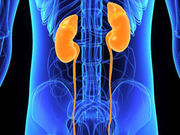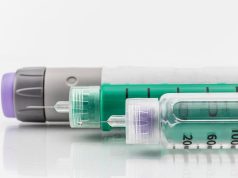Reduction in incident or worsening nephropathy, and in doubling of serum creatinine level
TUESDAY, June 14, 2016 (HealthDay News) — For patients with type 2 diabetes at high cardiovascular risk, empagliflozin is associated with a reduction in incident or worsening nephropathy, according to a study published online June 14 in the New England Journal of Medicine. The research was published to coincide with the American Diabetes Association’s 76th Scientific Sessions, held from June 10 to 14 in New Orleans.
Christoph Wanner, M.D., from Würzburg University in Germany, and colleagues randomized patients with type 2 diabetes and an estimated glomerular filtration rate of at least 30 ml/min/1.73 m² of body surface area to once daily empagliflozin or placebo.
The researchers found that incident or worsening nephropathy occurred in 12.7 and 18.8 percent of the empagliflozin and placebo groups, respectively (hazard ratio, 0.61). Doubling of the serum creatinine level occurred in 1.5 and 2.6 percent of the empagliflozin and placebo groups, respectively (relative risk reduction of 44 percent). Overall, renal-replacement therapy was initiated in 0.3 and 0.6 percent of the empagliflozin and placebo groups, respectively (55 percent lower relative risk). The rate of incident albuminuria did not differ significantly between the groups.
“In patients with type 2 diabetes at high cardiovascular risk, empagliflozin was associated with slower progression of kidney disease and lower rates of clinically relevant renal events than was placebo when added to standard care,” the authors write.
Several authors disclosed financial ties to Boehringer Ingelheim and Eli Lilly, both of which jointly manufacture empagliflozin and partially funded the study.
Copyright © 2016 HealthDay. All rights reserved.








